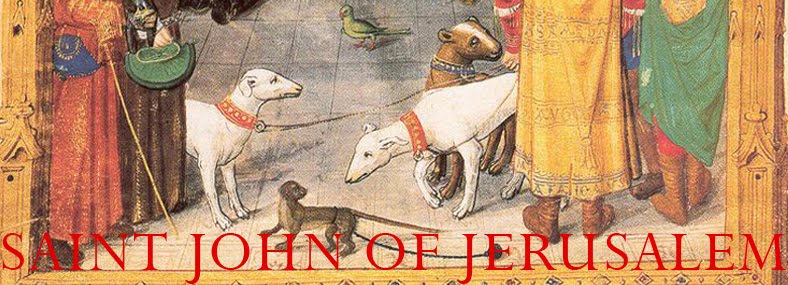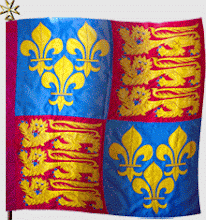HOMILY FOR THE FEAST OF BLESSED DAVID GUNSON
Precious Blood Borough, Wednesday 11 July 2018
I entered seminary in 2005, some thirteen years ago. Before I studied Law and I loved it! I had grown up a studious child, in my large family, often escaping from my siblings to enjoying reading history, politics, the constitution, heraldry. It was a good preparation for the Law!I remember my first lecture of Public Law which covered our constitution: the Crown, Parliament - the Lords and Commons, the judiciary, how a law is made and so on. I distinctly remember our lecturer impressing on us the foundation of the British Constitution: ‘There is no law that Parliament may not make.’This evening, as we honour the sacrifice Blessed David Gunson I want to reflect on how Parliament has been the cause of so much of our past hurts and invariably the cause of our stormy present. Let us review some of the Acts of Parliament which brought our forebears such suffering: In 1531 an Act of Parliament gave Henry Tudor the title of ‘Supreme Head on earth of the Church of England’; an Act of Parliament suppressed our Order in England in 1540; in 1541 an Act of Parliament attained Blessed David Gunson with treason; when our last Catholic king, James II, sought to grant toleration, an Act of Parliament deposed him and Parliament invited his daughter Mary and her husband William of Orange to invade and usurp King James’ Crown; when Queen Anne died without issue in 1714, Parliament had already ensured a Protestant succession by the Act of Settlement, absolutely excluding Catholics or those married to Catholics from inheriting the Throne.A tyrannical monarch is an easier narrative, but what this realm has long suffered from is tyrannical Parliaments. Our monarchs know their limits, their constitutional role: to be consulted, to encourage and to warn. Parliament knows no limit to its authority. We can call to mind of Acts of Parliament in our own time which have subverted the Law of God and continue the work of the destruction begun under the Tudors: in 1967, an Act of Parliament opened the door to eight million abortions; the Human Fertilisation and Embryology Act of 1990 that permitted the beginning of in vitro fertilisation; in 2014, an Act of Parliament redefined marriage to enable same-sex unions.Our constitution is founded on the principle that there is no law that Parliament may not make. We reply: No. Parliament may not make any laws contrary to the natural law, contrary the law of God, or any contrary to human reason. So much of our suffering over the centuries has been due to a Parliament that knows no limit to its power, a Parliament that may legislate and has legislated contrary to the natural law, contrary to the law of God, contrary to human reason.
These new laws invite us to a new martyrdom just as the laws of former times summoned our ancestors to a necessary confrontation with evil. A nation founded on laws directly opposed to the law of God cannot long endure: almost the entire Old Testament is the history of a nation’s infidelity leading to every kind of evil, with a remnant remaining honouring God with right worship and fidelity to his law.Our Catholic Faith has been subversive of the new State and of laws instituted in the reign of Henry Tudor and under the Parliaments that continued his revolt against God’s law. As Catholics, we believe in Absolute Truth. We believe that any law contrary to what God has commandment is unjust and need not be obeyed. Some of our forebears’ fidelity was so strong they paid the ultimate price. Blessed David Gunson wanted to live. He didn’t want to die. We all fear death, but as our Lord said, ‘…fear ye not them that kill the body, and are not able to kill the soul: but rather fear him that can destroy both soul and body in hell.’Our constitution has exchanged the tyranny of one for the tyranny of the many; the absolutism of a monarch for the absolutism of a Parliament. We have enshrined in our constitution that a majority can make laws regardless of reason, the natural law or the law of God.Our martyrs give a witness down the centuries to resistance to the State, to tyranny, to unjust laws and to the grace of God that can work even in frail human beings who, much like ourselves, would have trembled in the face of death Blessed David was to endure and who may have shrunk when confronted with the horror of execution.In our own day we are called not to a physical martyrdom - yet - but we are certainly called to a type of martyrdom, a sacrificing of human respect. We may not be dragged on a hurdle, but we do run the gauntlet of social media, we may not be put to death but we may suffer a social death when we dare to speak for the Truth: that we are created male and female, that life is sacred from the moment of conception and ought to be given the protection of law, that marriage is indissoluble, that our Lord alone is the Saviour and sole Redeemer of mankind. We may be castigated for such beliefs, ridiculed in our work or friendship groups, even in our families, we may risk our jobs for speaking Truth or be excluded from the publ ic square or political discourse. But if we do not speak for the Truth we shame our forbears.We have seen how tyrannical Parliaments past and present have been the source of so much that runs contrary to the law of God, and yet, the very Act that attainted Blessed David with treason reads as a beautiful epitaph, recording for posterity how he was brought to the scaffold: The Act reads, ‘That while living in parts outside the kingdom, Sir David persistently during that time, at Malta and elsewhere, publicly and distinctly, denied and opposed thatKing Henry is Supreme Head on earth of the Church of England.’ What a wonderful reason to die. What fidelity to those words of our Lord, ‘And I say to thee: That thou art Peter; and upon this rock I will build my church,’A final thought: in the last book of the Bible, the book of the Apocalypse or Revelation to St John, he writes of heaven: ‘I saw a great multitude, which no man could number, of all nations, and tribes, and peoples, and tongues, standing before the throne, and in sight of the Lamb, clothed with white robes, and palms in their hands. And they cried with a loud voice, saying: “Salvation to our God, who sitteth upon the throne, and to the Lamb”.’It is a passage of such beauty and victory; it makes one want to weep. And there is a prophecy within it for us: ‘A great multitude…clothed in white robes and palms in their hands.’ St John foresees that the multitude in heaven are martyrs for they carry the attribute of a martyr so familiar to use from sacred art and sculpture, the martyr’s palm. Most of the saints are martyrs. It is the ordinary death of the Christian, Christ himself said: ‘Remember my word that I said to you: The servant is not greater than his master. If they have persecuted me, they will also persecute you.’Let us ask the Lord in this Mass for the grace to be made martyrs for him, to be faithful to him whatever the cost may be and in all things to be witnesses to the Truth, proving ourselves worthy to be spiritual descendants of our martyrs.Our Lady, Queen of Martyrs, pray for us.Blessed David Gunson, pray for us.
TRUTH AND THE LAW - HOMILY FOR BL DAVID GUNSON
How apt are the words, in the light of the posts with which this blog has recently been concerned, preached by Father Edmund Montgomery on the Feast of our glorious martyr Blessed David Gunson. Fr Montgomery highlights for us the contradiction between the Laws of Parliament, which bring death, and continue to do so in our own time, and the Law of Truth, which leads us to everlasting life.
We are grateful to him for journeying to London to say Mass for us on the vigil of the Feast, 12th July, and for his inspiring words, which are reproduced below. Fr Montgomery is Administrator of Shrewsbury Cathedral, and a Magistral Chaplain of our Order.
Category (click to see all related):
Catholic life,
Faith,
Reports,
Saints of the Order












